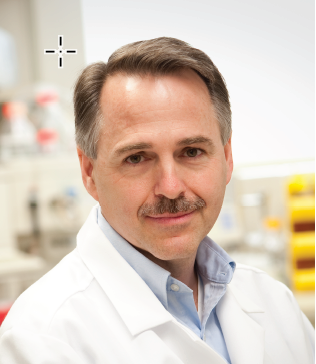Events in October 2024
| SunSunday | MonMonday | TueTuesday | WedWednesday | ThuThursday | FriFriday | SatSaturday |
|---|---|---|---|---|---|---|
|
September 29, 2024
|
September 30, 2024
|
October 1, 2024
|
October 2, 2024
|
October 3, 2024
|
October 4, 2024(1 event)
– Pharmaceutical Sciences Seminar Series(Drug DISCOVERY Specific Seminar)
Hosted by Jennifer Golden 777 Highland Ave
Madison, WI 53705
United States
|
October 5, 2024(1 event)
October 5, 2024 Wisconsin Badgers vs. Purdue Boilermakers FootballPre-game Tailgate & Game Viewing PartyAlumni & Friends Tailgate
No game tickets? No problem! Stay for our private viewing party and watch the game from the comfort (and warmth) of Union South! Wisconsin vs. Purdue Game Viewing Party
Both events are FREE for all to attend! Advance registration requested — Register Now Please direct questions to Alissa Karnaky, Alumni Relations and Advancement Coordinator, at karnaky@wisc.edu or (608) 263-2265. 1308 West Dayton Street
Madison, WI 53715
United States
|
|
October 6, 2024
|
October 7, 2024
|
October 8, 2024
|
October 9, 2024
|
October 10, 2024
|
October 11, 2024(1 event)
– All-Division Colloquium2024 C. Richard Hutchinson Lecture
The NCI Program for Natural Product DiscoveryNatural products have a proven track record in use as anti-cancer and anti-infective agents. As of 2020 natural products (NP), NP pharmacophores, and NP mimics represented >40% of small molecule-based anti-cancer and anti-microbial drugs. However, accessing the potential of NPs in drug discovery campaigns has been challenging resulting in NP-based libraries often being excluded from screening programs. To address the challenges in screening NPs and encourage increased use of NP chemical diversity, the NCI created a Program for Natural Product Discovery (NPNPD). This presentation will discuss the reasons for, challenges to, and mechanisms by which to increase the pace and efficiency of NP-based drug discovery. About the Spaker: Dr. Barry O’Keefe received a BS in Botany from Michigan State University and a PhD in Pharmacognosy from the University of Illinois at Chicago. Dr. O’Keefe immediately started post-doctoral research in the National Cancer Institute’s Laboratory of Drug Discovery Research and Development to study novel proteins from natural products extracts; studies he continues as Head of the Protein Chemistry and Molecular Biology Section in the Molecular Targets Program of the NCI Center for Cancer Research. In 2015 Dr. O’Keefe accepted a joint position and was also appointed Chief of the Natural Products Branch, DTP, DCTD, NCI which is responsible for the collection, extraction, pre-fractionation and discovery of bioactive natural products. He was appointed Director of the Molecular Targets Program in the CCR in 2020. Dr. O’Keefe is an inventor on over 50 U.S. and international patents and is an author of over 140 peer-reviewed manuscripts. Hosted by Dean Steven Swanson The C. Richard Hutchinson Lecture is intended to celebrate and recognize careers dedicated to contemporary research and major advances in natural product discovery and development. Read more about Dr. C. Richard Hutchinson and view speakers from previous years. 777 Highland Ave
Madison, WI 53705
United States
|
October 12, 2024
|
|
October 13, 2024
|
October 14, 2024(1 event)
– |
October 15, 2024
|
October 16, 2024
|
October 17, 2024
|
October 18, 2024(1 event)
– Join us for the annual UW–Madison School of Pharmacy Career Fair! Contact Chelsea Wimmer, PharmD Career Services Manager, with questions. Interactive Learning Center, HSLC
|
October 19, 2024
|
|
October 20, 2024
|
October 21, 2024
|
October 22, 2024
|
October 23, 2024
|
October 24, 2024
|
October 25, 2024
|
October 26, 2024
|
|
October 27, 2024
|
October 28, 2024
|
October 29, 2024
|
October 30, 2024
|
October 31, 2024
|
November 1, 2024(2 events)
November 1, 2024 Block 4 runs from September 23 to November 1, 2024 . Online
– Pharmaceutical Sciences Seminar Series(Drug DISCOVERY Specific Seminar)
Development of Pan-Viral Nucleoside InhibitorsThe severity and rapid spread of the coronavirus pandemic served to drive home that we were completely unprepared to fight such an outbreak. As a result, it became clear that there was a critical need for small molecule, orally bioavailable, broad-spectrum drugs that could be stockpiled and readily distributed when the next outbreak occurs. In that regard, for many years nucleos(t)ides have maintained a prominent role as one of the cornerstones of antiviral and anticancer therapeutics, and numerous scaffolds in nucleos(t)ide and nucleic acid drug design have been pursued. One such approach involves adding flexibility to the sugar moieties of nucleos(t)ides, for example, in the highly successful anti-HIV/HBV drug Tenofovir developed by Antonín Holý. In contrast, introduction of flexibility to the nucleobase scaffold has only more recently gained significance with the invention of our fleximers. This modification has led to a significant improvements in antiviral activity, and in some cases endowing the nucleoside with potent broad-spectrum activity across several viral families, when the parent rigid nucleoside was inactive. Another advantage observed is the ability to avoid resistance mechanisms related to point mutations by engaging secondary amino acid residues not previously involved in the mechanism of action. A second series of nucleosides being pursued in our group, involves insertion of a heterocyclic spacer ring in between the two moieties of the bicyclic purine ring system, forming an expanded tricyclic nucleoside with increased aromaticity. This modification has also led to potent antiviral activity, again targeting several different pathogens of pandemic concern. A brief history of their design, synthesis, and recent antiviral findings for these innovative nucleos(t)ide scaffolds will be discussed. Hosted by Jennifer Golden 777 Highland Ave
Madison, WI 53705
United States
|
November 2, 2024
|

